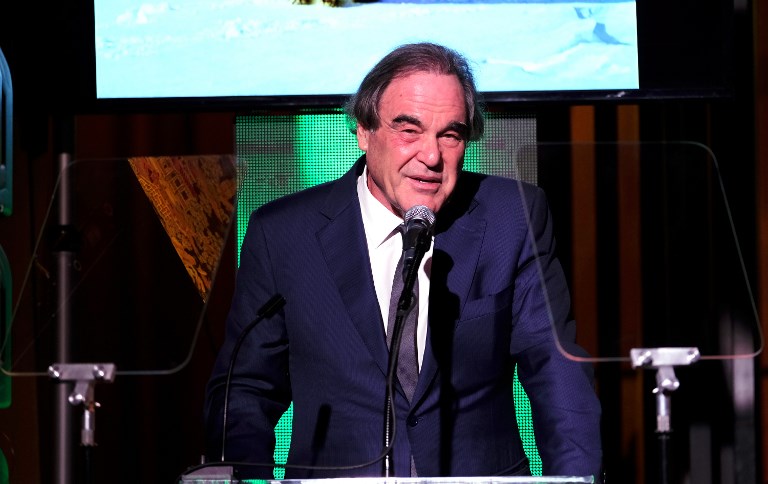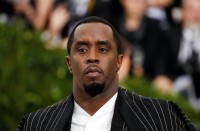
NEW YORK, United States (AFP) — Oliver Stone, the Hollywood director and triple Oscar winner, puts Russian President Vladimir Putin in United States living rooms on Monday by broadcasting interviews with a leader who fascinates and repels many Americans in equal measure.
“The Putin Interviews” is the product of 12 conversations between the Russian leader and Stone between July 2015 and February 2017, cut into four one-hour programs shown from Monday to Thursday on cable network Showtime.
If Putin offers few revelations about policy, staunchly defending his domestic record and offering his perspective on 70 years of Russian-American relations, the series gives Western viewers a rare, unfiltered look at his thinking.
By choosing subtitles rather than dubbing, the director of “Platoon,” “Born on the Fourth of July” and “JFK” gives US television audiences the impression of almost being in the same room with the Russian leader.
Putin clearly exercises fascination over Stone, who at one point tells him: “You are an excellent (chief executive officer) of a company. Russia is your company.”
No journalist, he gives Putin free reign to voice his thoughts on geopolitics, accuse the United States of supporting “terrorists” in Chechnya and the Caucuses and voice concern about US military ambitions in Eastern Europe.
Mixed with geopolitics are Putin’s musings on a range of lighter topics such as how judo “changed my life for the better” and how being a man makes him less prone to emotional outbursts of women.
“I’m not a woman so I don’t have bad days. I’m not trying to insult anyone. That’s just the nature of things. There are certain natural cycles,” Putin said.
Stone told Australian public television that the point of the series was to challenge the “politically, ideologically driven image” of Putin in the West.
“You have to listen for yourself and judge for yourself,” he said, freely admitting that he “liked” and “respected” Putin.
“The man speaks very articulately about what the Russian interests are in the world.” But of the future, Stone said he was pessimistic.
“We’re sleepwalking towards a nuclear nightmare. When you see my documentary, you can understand why,” he said.
© Agence France-Presse







